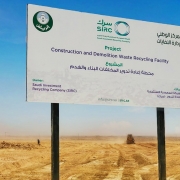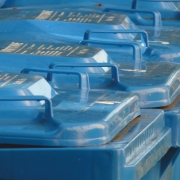FEAD Welcomes the EU Strategy on Sustainable Textiles
FEAD welcomes the EU Strategy for Sustainable and Circular Textiles presented on 30 March by the European Commission as part of a package to make sustainable products the norm in the EU. Main aim of the Textile Strategy is to create a coherent framework and a vision for the transition of the textiles sector by 2030. FEAD strongly supports the introduction of binding product specific ecodesign requirements to increase textiles performance in terms of durability, reusability, reparability, fibre-to-fibre recyclability, and the introduction of mandatory recycled fibre content.
Significant efforts in research and innovation must be made in the next years, as textile recycling is still at the very beginning, especially in relation to fibre-to-fibre recycling. Mandatory recycled content will trigger needed investments and support the aim of the Commission to encourage businesses to prioritise their efforts on fibre-to-fibre recycling. Mandatory criteria for green public procurement of textile will also contribute to increase the recyclability of textiles and the purchase of recycled textiles. The introduction of extended producer responsibility (EPR) requirements with eco-modulation of fees as part of the forthcoming revision of the Waste Framework Directive in 2023 would also help to incentivise the separate collection, sorting, reuse, preparation for reuse and recycling for textile waste, which need to be further developed.
Textile-to-textile recycling is a key strategy for saving resources in this sector, preserving the value of materials and fostering a circular economy. Developing a market and qualitative initial products are essential. The current global trend for “fast fashion”, with overabundant, very low-quality textiles production, is therefore a big hurdle to more recycling at needs to be tackled at EU level.
In terms of waste shipments, the EU should set up an effective control mechanism for the exports of used textiles, in order to avoid illegal shipments and to ensure proper environmentally sound recycling/recovery processes outside EU. Specific EU level criteria need to be developed to make a distinction between waste and certain second-hand textile products, to avoid that waste streams are falsely labelled as second-hand goods when exported from the EU and in this way escape the waste regime. Exports of textile waste to non-OECD countries have to follow conditions that ensure a sustainable management under the Waste Shipment Regulation.
For more information, visit: www.fead.be
Source: FEAD (Brussels, 11 April, 2022)








